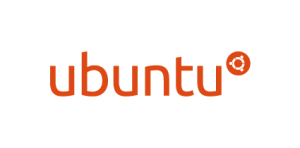The Ubuntu story
ubuntu |oǒ’boǒntoō|
Ubuntu is an ancient African word meaning ‘humanity to others’. It also means ‘I am what I am because of who we all are’. The Ubuntu operating system brings the spirit of Ubuntu to the world of computers.
Where did it all begin?
Linux was already established as an enterprise server platform in 2004, but free software was not a part of everyday life for most computer users. That’s why Mark Shuttleworth gathered a small team of developers from one of the most established Linux projects – Debian – and set out to create an easy-to-use Linux desktop: Ubuntu.
The vision for Ubuntu is part social and part economic: free software, available to everybody on the same terms, and funded through a portfolio of services provided by Canonical.
Ubuntu releases
The Ubuntu team broke new ground in committing to a programme of scheduled releases on a predictable six-month basis. It was decided that every fourth release, issued on a two-year basis, would receive long-term support (LTS). LTS releases are typically used for large-scale deployments.
Ubuntu is different from the commercial Linux offerings that preceded it because it doesn’t divide its efforts between a high-quality commercial version and a free ‘community’ version. The commercial and community teams collaborate to produce a single, high-quality release, which receives ongoing maintenance for a defined period. Both the release and ongoing updates are freely available to all users.
Governance
The first official Ubuntu release — Version 4.10, codenamed the ‘Warty Warthog’ — was launched in October 2004, and sparked dramatic global interest as thousands of free software enthusiasts and experts joined the Ubuntu community.
The governance of Ubuntu is somewhat independent of Canonical, with volunteer leaders from around the world taking responsibility for many critical elements of the project. It remains a key tenet of the Ubuntu Project that Ubuntu is a shared work between Canonical, other companies, and the thousands of volunteers who bring their expertise to bear on making it a world-class platform for anyone to use.
Ubuntu today
Ubuntu today has eight flavours and dozens of localised and specialised derivatives. There are also special editions for servers, OpenStack clouds, and mobile devices. All editions share common infrastructure and software, making Ubuntu a unique single platform that scales from consumer electronics to the desktop and up into the cloud for enterprise computing.
The Ubuntu OS and the innovative Ubuntu for Android convergence solution make it an exciting time for Ubuntu on mobile devices. In the cloud, Ubuntu is the reference operating system for the OpenStack project, it’s a hugely popular guest OS on Amazon’s EC2 and Rackspace’s Cloud, and it’s pre-installed on computers from Dell, HP, Asus, Lenovo and other global vendors. And thanks to that shared infrastructure, developers can work on the desktop, and smoothly deliver code to cloud servers running the stripped-down Ubuntu Server Edition.
After many years Ubuntu still is and always will be free to use, share and develop. We hope it will bring a touch of light to your computing — and we hope that you’ll join us in helping to build the next version.







